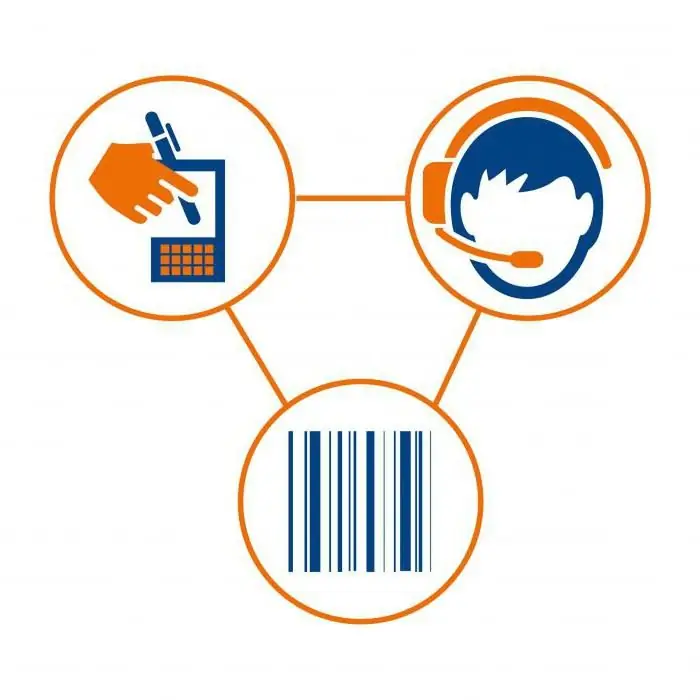2026 Author: Howard Calhoun | calhoun@techconfronts.com. Last modified: 2025-01-24 13:10:33
Factoring is already becoming indispensable in the commercial sphere today. Often, suppliers of goods and services face a difficult choice: work on prepaid or give their customers the right to defer payment? The first option can reduce the number of potential customers of the company. The second - creates certain risks that can jeopardize the entire business activity. The golden mean here is the use of certain factoring schemes. This article will be devoted to them.
What is this?
Before dealing with factoring schemes, let's present the reader with the definition of the main concept.
Factoring is the financing of a certain monetary claim against an assignment. This is a certain form of commodity loans, in which the rights to the debt of creditors are transferred to a third party (in this case, a factor). In this case, the supplier of goods / services receives the payment due to him sooner than was agreed in the contract with the buyer / consumer.
This term is of English origin. Here factoring is mediation.
Who canact as a factor? In most cases, these are specialized companies. Factoring departments of commercial banks are more common in the Russian Federation.

Functions
Understanding factoring schemes will help familiarity with its defining functions:
- Supplier financing. Namely, the rapid replenishment of his capital.
- Debt collection. In this aspect, this is a managerial function.
- Insurance against the risk of non-payment (if necessary).
Participation
Whatever factoring scheme we consider, these three parties will definitely take part in it:
- Factor. This is either a separate factoring company, or a bank department of the same name.
- Supplier of goods, services. He acts, respectively, as a customer and a creditor.
- Customer. In this situation, the debtor.
Factoring: how it works
Let's move on to a direct explanation. The scheme of factoring is easiest to imagine in the following algorithm:
- Supplier ships products to buyer. Previously, they agree on a deferred payment for it. As a rule, this is from a week to 4 months.
- The supplier enters into a contract with a factoring company, transfers all invoices for this transaction to it.
- Factor pays due invoices to supplier's account. In most cases, this is 90% of the total cost according to these documents. The remaining 10% is sent to the seller's accountafter the buyer receives his goods, check it. Of course, factoring services are not provided free of charge - the company receives a certain commission from the total amount of the transaction.
- Buy pays for the received product / specified service after the specified time to the factor.
This is how the standard procurement factoring scheme looks in general terms. Let's move on to the description of the important points of the process.

Activity steps
We got acquainted with the factoring scheme with an explanation. Now we will present a more detailed description of the stages of this work.
Preliminary activities. Prior to concluding an agreement with a customer, the specialists of the factoring company evaluate and analyze the financial capabilities and reputation of their potential client (the buyer in this case).
As for the supplier, he is obliged to provide the necessary reliable information about the buyer. He also informs about the terms of payment and delivery of the goods, is obliged to inform the factoring company how conscientious the buyer was during past cooperation.
Documentation. An important point in the scheme of work in purchasing factoring is the conclusion of an agreement between the customer and the factor. The following must be written in the contract:
- Subject of the agreement.
- Rights and obligations of all stakeholders.
- Description of customer financing procedure.
- Loan limits.
- Description of the procedure, conditions for the transfer of rights tofactoring company debt.
- The cost of the work of factoring specialists, the method of calculation with a factor.
- If necessary, a clause on insurance in case of violation by the debtor of his obligations.
- Terms of the contract.
- Other terms important to the parties.
Control. The agency factoring scheme always includes this important point. Includes the following:
- Checking the fulfillment by the participants of the obligations that are assigned to them by the contract. In case of violation, a claim will be formed accordingly.
- Checking that the assets involved match the documented requirements from the factoring firm.
- Analysis of the assessment: should it be changed by the customer (seller) or client (buyer, debtor).

When is it needed?
We started the article with the fact that factoring is becoming indispensable in the current conditions of world trade. After all, there is a situation that the intervals between the fact of shipment of goods and receipt of payment for it are becoming longer and longer. We should not forget about the various force majeure circumstances in which this service becomes vital.
In the article, we presented factoring schemes with and without recourse. But in what cases is their use necessary in a business situation? Here are the main working cases:
- The need for an urgent increase in working capital. Factoring services here are more profitable than taking short-termloans. This reason is most relevant for small businesses. For which, it must be said, there are no available and mutually beneficial conditions for short-term loans in Russia yet.
- Attracting a customer. In order not to miss a profitable client, the seller wants to offer him the most favorable terms of cooperation. But at the same time, he is not ready to wait for payment in installments.
- Working with new customers. As a rule, it is often accompanied by unstable payment. Factoring allows you to be guaranteed to receive payments after the shipment of products.
- Supplies from small companies and enterprises to giant corporations. The latter are often characterized by inflexible working patterns with fixed payment terms.

When is factoring not possible?
You now know how the factoring scheme works. Below we list the cases in which it is not possible to contact factoring companies:
- When a firm simultaneously has a large number of buyers with outstanding debts.
- Referring to speci alty manufacturers.
- Firms whose business procedure is as follows: invoices are not issued immediately after shipment, but after certain work has been completed.
- Companies that enter into contracts with subcontractors.
- Suppliers who provide after-sales service to customers.
We also note the following situations in which the provision of factoring services is impossible:
- Artworksettlements between branches of the same enterprise, company.
- Repayment of debt obligations not of legal entities, but of individuals. Making settlements between budgetary institutions.

Key features of factoring
We present schemes of factoring for the buyer. But we will also demonstrate the key features of this service in order to show its defining differences from a loan in the next subheading:
- Refers to short-term services. There may be a delay in payment from the buyer for only a few days. The maximum term is one year.
- The service is provided without a deposit.
- Is the financing of the already developed, established current activities of a company or enterprise.
- The amount depends only on the sales volume of the customer-supplier.
- From the amount paid to the customer, the commission for the provision of services by the factoring company is necessarily deducted. There are also schemes in which the amount of debt is repaid in installments. For example, one half - before settlements with the debtor, the second - after them.
- Minimum paperwork (compared to the same loan). In fact, all you need is an invoice, invoices and a contract. The latter may be permanent. That is, once concluding it, the customer will receive financing from the factoring company after the presentation of the invoice and waybills.
- Debt returned by a third party. That is, it is paid by the payer-buyer not to the seller's account, but to the factor's account.
Keyloan features
Factoring services, although in some places they resemble lending, often turn out to be the same banking organizations, differ in many respects from it. Let's introduce the key characteristics of a loan to show this difference:
- At its core, lending is long-term.
- Loan in most cases is issued only on collateral.
- The loan amount is clear, agreed in advance in the contract.
- A loan is issued in certain cases for building a business, its development from scratch or low starting positions.
- When lending, the entire loan amount is issued at once.
- To obtain a commercial loan, you need to collect an impressive package of documentation. At the same time, receiving one loan from a bank does not mean at all that the next one will be provided to the credited one. A separate agreement is concluded for each loan.
- The debt of a banking organization is paid by the legal entity or individual for which the loan was issued.

Varieties of factoring
We demonstrated factoring schemes with and without recourse. Now let's look at what factoring services are in general - let's get acquainted with their classifications.
According to the situation of debt:
- Real. The factoring agreement is concluded after the debt obligations arise.
- Consensual. Debt obligations here are assigned in advance.
By residency of participants:
- Domestic. All participants are in the samestate.
- External. International factoring.
By the number of factors themselves:
- Straight. There is one factor.
- Mutual. There are two factors involved in the deal.
By range of services provided:
- Wide (or conventional). There is not only financing and further collection of debt, but also accounting, insurance and other related customer services.
- Narrow (limited). The range of services of a factoring company is minimal - customer financing and debt collection.
By type of workflow:
- Traditional.
- Electronic.
Significant Benefits
Let's define the most compelling advantages of factoring:
- No deposit required.
- The requirements for the supplier's solvency are quite lenient.
- Guaranteed uninterrupted cash flow, accelerating this process.
- Organization of collection of the buyer's debt not by the supplier, but by the factoring company.
- Conclusion of a factoring agreement, in fact, is insurance against non-payment.
- Savings on income tax, which is deducted upon shipment of goods.
- Such financing does not appear as a loan, which is why it does not violate the company's balance sheet.
- The ability to attract buyers with a flexible payment system.
Significant deficiencies
Let's look at how factoring is bad compared to traditional lending:
- High commission. Up to 30% per annum or up to 10% of debtbuyer.
- Must provide details of buyers.
- In practice, factoring generally remains applicable only to non-cash payments.

Factoring is a rather attractive service for both small and medium-sized enterprises. Today, you can choose any scheme of work that is convenient for you and the factor itself - a bank or a specialized company. But it is also important to keep in mind not only the advantages of such a payment system, but also its features and disadvantages, as well as cases in which such a service is not provided.
Recommended:
Logistics operations: concept, features, types

The article discusses the logistics operations and the functions that they are designed to perform in the conditions of modern production
Cash and credit operations of banks. Types of banking operations

The main operations that a commercial bank performs are credit and cash. What are their specifics? According to what rules are they carried out?
A conversion operation is Types of conversion operations. Conversion transactions

A conversion operation is a transaction carried out by participants in the foreign exchange market to exchange the currency of one state for the monetary unit of another. At the same time, their volumes are agreed in advance, as is the course with settlements after a certain time. If we consider the concept from a legal point of view, we can conclude that a conversion operation is a currency purchase and sale transaction
Types of banking operations. Settlement and cash services. Operations of banks with securities

Before you know what types of banking transactions exist, you need to understand some of the most important definitions. For example, what is the institution in question itself? In modern economic terminology, the bank acts as a financial and credit unit that performs all kinds of operations with both money and securities
Tolling scheme - what is it? Accounting for tolling processing operations

Civil legislation of Russia provides for building relations between enterprises on a give-and-take basis. What is its specificity? How is the accounting of transactions carried out within the framework of the relevant scheme of legal relations?

